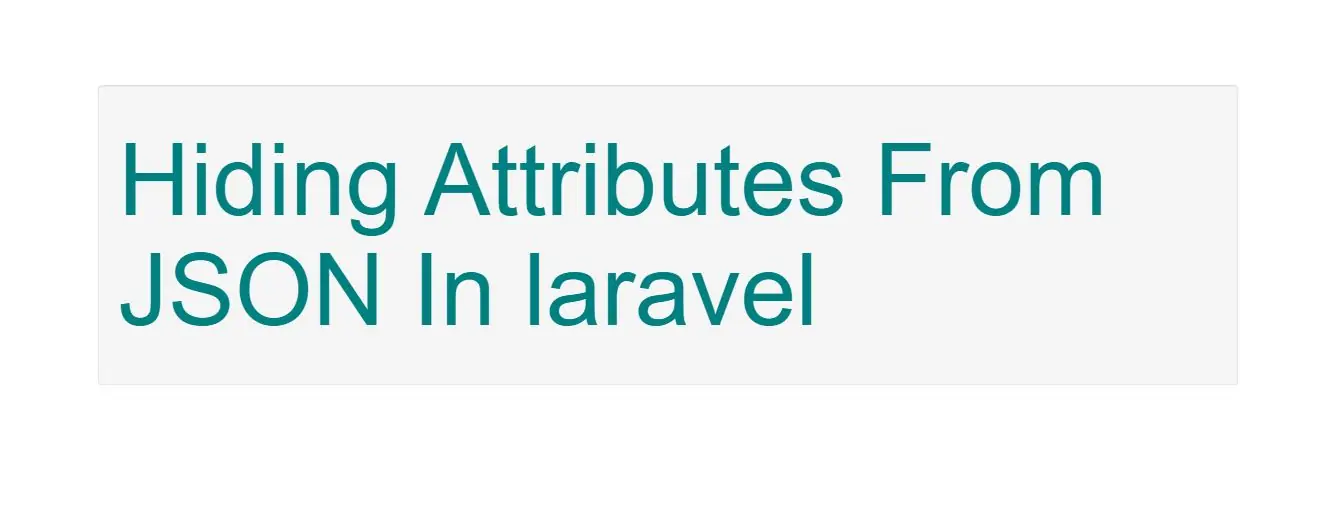
Hiding Attributes From JSON
Sometimes you may wish to limit the attributes, such as passwords, that are included in your model's array or JSON representation.
To do so, add a $hidden property to your model:
Example(1)
<?php
namespace App;
use Illuminate\Database\Eloquent\Model;
class User extends Model
{
/**
* The attributes that should be hidden for arrays.
*
* @var array
*/
protected $hidden = [
'password', 'remember_token',
];
}
When hiding relationships, use the relationship's method name.
Alternatively, you may use the visible property to define a white-list of attributes that should be included in your model's array and JSON representation.
All other attributes will be hidden when the model is converted to an array or JSON:
Example(2)
namespace App;
use Illuminate\Database\Eloquent\Model;
class User extends Model
{
/**
* The attributes that should be visible in arrays.
*
* @var array
*/
protected $visible = ['first_name', 'last_name'];
}
Temporarily Modifying Attribute Visibility
If you would like to make some typically hidden attributes visible on a given model instance, you may use the makeVisible method. The makeVisible method returns the model instance for convenient method chaining:
<?php
namespace App\Http\Controllers;
use App\Http\Requests;
use App\User;
class demoController extends AppBaseController
{
public function index()
{
$user = User::find(1);
return $user->makeVisible('attribute')->toArray();
}
}
Likewise, if you would like to make some typically visible attributes hidden on a given model instance, you may use the makeHidden method.
<?php
namespace App\Http\Controllers;
use App\Http\Requests;
use App\User;
class demoController extends AppBaseController
{
public function SerializationToJSON()
{
$user = User::find(1);
return $user->makeHidden('attribute')->toArray();
}
}